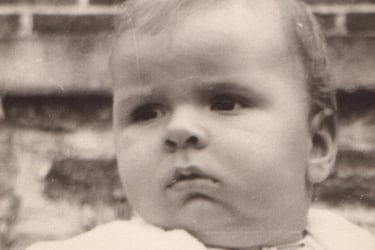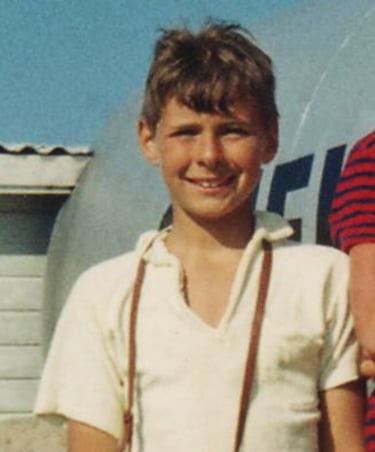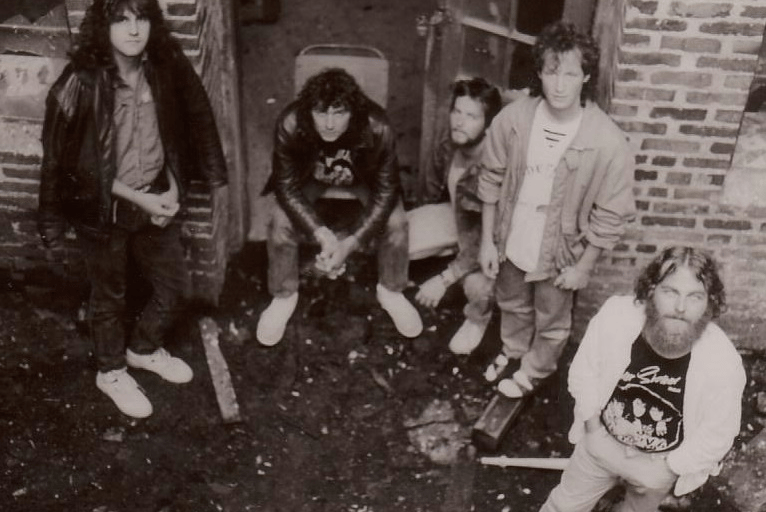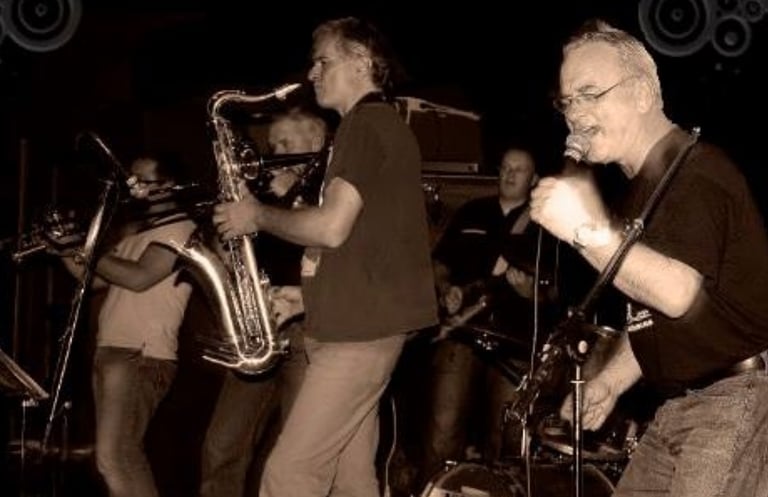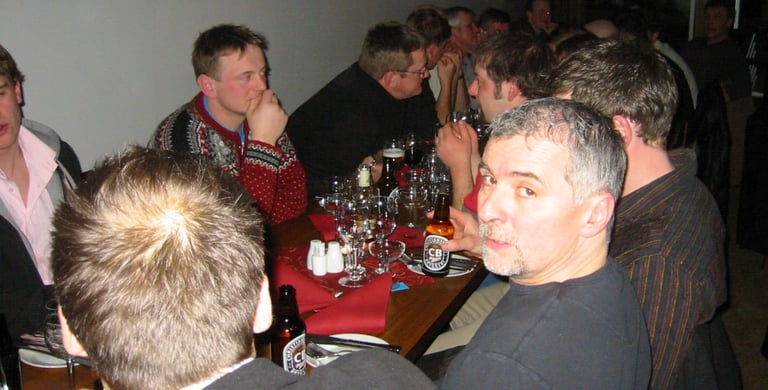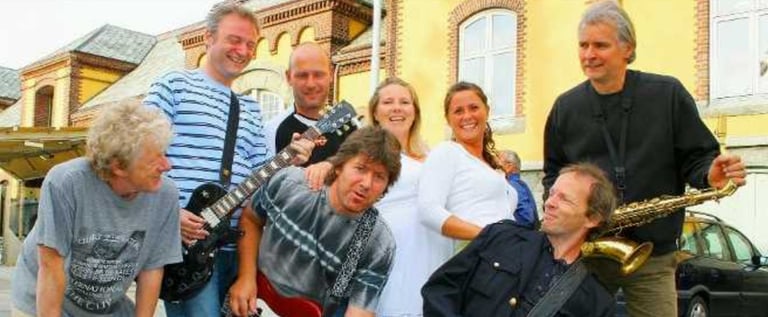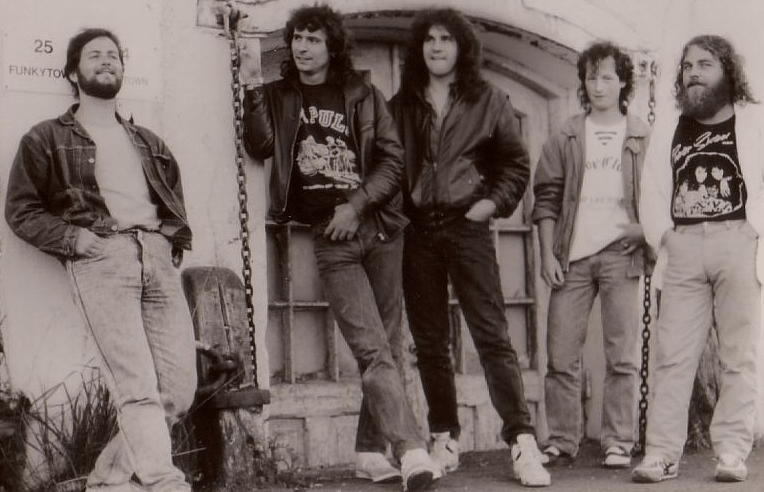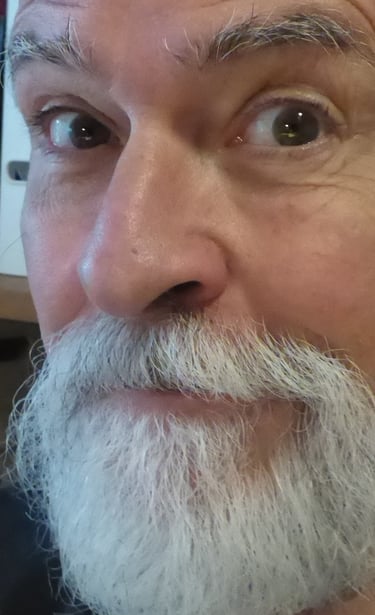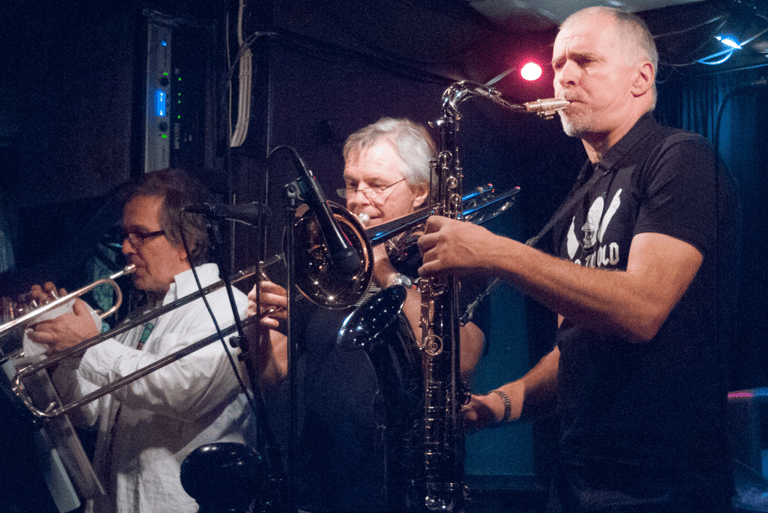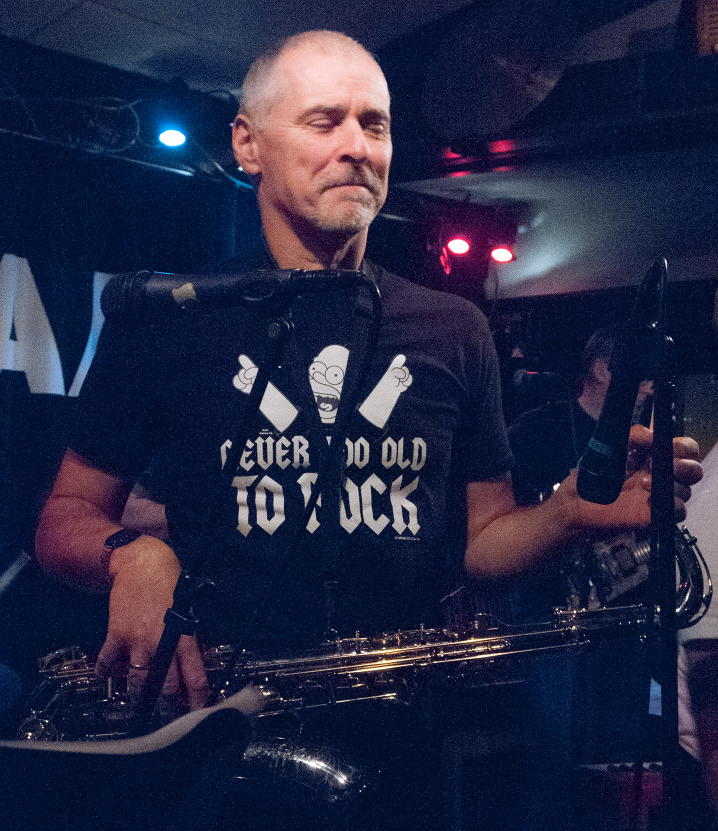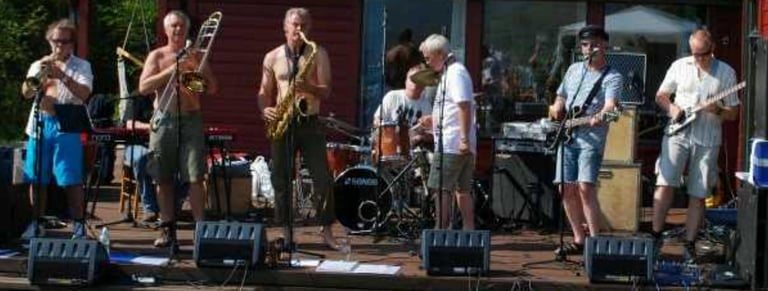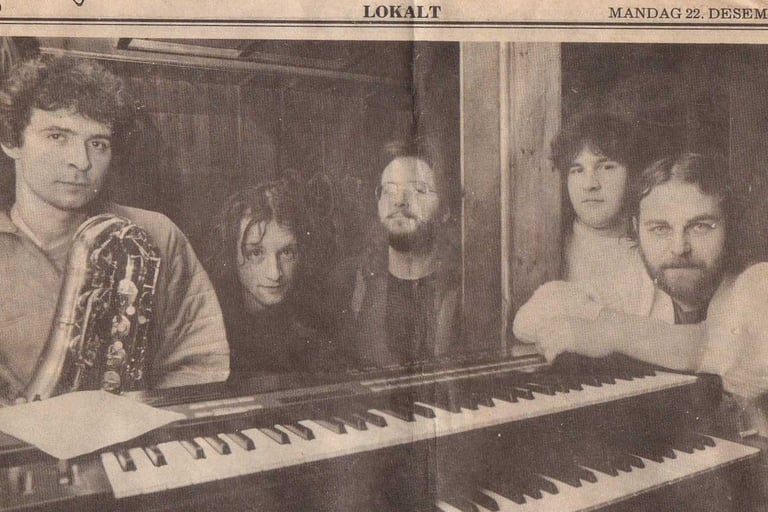About me
I have not had much musical education. I went to a guitar course in my early teens, and liked it. However, my friends at that time were not much into music, so I didn't have anyone to play with. Later, at a party held by a schoolmate, I tried his brother’s tenor sax. I instantly saw the light...
My big brother was given different instruments in the school band. In addition to percussion, he later played the flute and the alto saxophone. He also joined a couple of rock band horn sections. But then, as he was going abroad for university, he realized that his horn might become too much of a distraction and decided to let it go. He said to me: «If you want it, you may have it cheap, but then I don’t know why you should need it».
Siblings may be harsh. Anyway, through him and his friend (later to become the founder of MaiJazz, the international jazz festival in Stavanger, Norway) I regularly was fed with exciting music. I had a great appetite for almost any tradition, format and style.
I ended up buying my brother’s horn. Then I went to a music store and bought a little 50 page booklet about playing it, showing where to put your fingers to manage all the notes. Sax is a noisy instrument, and I was not so ambitious and systematic, so I improved quite slowly. But teenagers tend to fall into deep darkness when close relationships are broken, as they are fairly new to the ups and downs in life. I was no exception. The sax was the solution, playing it gave me comfort. Music was medicine number one when sadness came over me.
As I went north to join the army for a year, I took my horn with me. Before leaving home, I had fallen in love again. When longing for my girl, playing the horn gave me comfort. I went down in the basement of the barracks for rehearsals now and then. I also jammed with some fellow soldiers. Slowly my playing became better.
After the army, it was time for jamming at houseparties, flipping out and smoking weed. Luckily weeds were abandoned at an early stage, or I'd stay put and never develop. My best friend and I were playing in a dance band, but we also went to jazz festivals, listening to amazing musicians.
Then came some years of political involvement and living with a nice girl. But as it came to an end, I took to the sax again for comfort. This time I was more dedicated, systematic and organized, so I did leaps forward. I had a new Selmer Super Action alto, but I never got to sound like Cannonball Adderly, my favourite at that time. I had a tendency to overblow, I knew little about mouthpieces, reed strength and gear.
Love came around again, this time with an american girl who knew some great musicians playing with world known artists. Some of her friends found me a used Conn Tenor 10 M «Naked lady» in perfect shape in a shop in New York. Her parents brought it to Norway. This horn made my day. The tenor gave me the response and sound I was urging for, and practising was more fun.
Back in the 50s, there were two dominant valve lever systems for the pinky finger. The system used by Selmer was after a while established as the industry standard, for good reasons. The Conn on the other hand required long movements. Busy fingerwork created much noise. The first time I tried a Selmer I was hooked. I could play fast at ease.
Then one day I came over an advertisement in a newspaper, put there by someone who had a Selmer tenor for sale, and I decided to pay a visit. This guy was a farmer, once having lived in the US for some years. He had no use for his horn anymore, because family and farming took all his time. Now this Selmer Mark VI from the sixties was lying there on the floor in an open case in the hens’ house. They had ripped the case almost to pieces, and the horn was buried in shit. I got it cheap. After giving it a bath I took it to someone who did repairs for school bands and had it overhauled. He used pads from here and there, but with the horn back again I had never sounded better.
During the eighties I had the Musician Magazine sent over from USA each month, and there, through interviews, I got insights about reeds and mouthpieces. Also, whenever I ran into some player with a clue, I asked them about equipment. The great Jan Garbarek also told me about his mouthpieces and reeds once I met him between sets on a concert.
Then I wrote a letter to a music store in New York. asking them to sell me things I could not easily get from local dealers. As I had a tendency to overblow in eager moments, and because I wanted to be heard in noisy rock bands, I ordered a rather open mouthpiece, an Otto Link number 7, and Rico 3 reeds. After a couple of years I switched to Otto Link number 9 and Rico 3.5 reeds. Manny’s Music in New York was my supplier, because the locals in my home town only had what was used by most players, soft reeds and tight mouthpieces, sometimes even making a sax sound like a kazoo or a synth. Dealing through hand written snail mail with US shops became the method, and it actually worked very well. Due to sudden currency variations I sometimes ended up owing money to them, but we had mutual trust and they delivered the goods anyway. This was long before the internet revolution made overseas deals a piece of cake.
As years went by, it became obvious that the already old Selmer would likely be worn out if I kept on playing it excessively as my only horn. I had the Conn 10 M as a spare, but due to different arrangements for the pinky finger, switching between them was somewhat tricky. So I started looking for a good Selmer Mark VI copy and have the original as a spare.
A new local instrument dealer had P.Mauriat saxophones, a brand that I had never heard of. I tried it out with my mouthpiece and it responded great, so I ended up buying one and at the same time delivering my Selmer to be serviced and saved as a spare.
Norway is not a densely populated country. Distances between gigs are long, touring is expensive. Niche artists may have trouble making a living unless some degree of financial support by the government or others, at least in the beginning. I had friends who where forced to play any style to earn money and stay available for touring, even with music they hated. I decided not to follow their path. If prostitution was what it took, as well as a low income, any straight job would do better.
So I became a carpenter and a builder for a living. At the same time I was a musical amateur with a kind of professional attitude, because music was utterly important in my life. That provided me with artistic freedom and economic sustainability. Recently retirement came along, set me free and gave me even more time for music. It is never too late to have fun.
Improvement?
I don’t read music. That is, I know the language, but I am unable to play off the sheets like so many others who have some musical education. I already was used to playing on the fly, so notes would usually be a digression, or maybe I did not bother. Not being able to read music is definitely a drawback in some situations, but band rehearsals went into my cassette recorder so I could remember horn arrangements and comments. For the music I was involved in, that mostly worked fine. And for someone who loves music, there is always a path through the ordeals of learning arrangements and how to play the instrument.
At an early age I discovered that good music and complicated music are not necessarily the same. The beauty of simplicity may overwhelm you. Miles Davis playing just a few notes on his trumpet could have more impact on me than someone running through lots of notes in a hurry. Intensity and furious playing are also not the same. Silence can be intense too. The emotional span of music is endless, the dynamics have no limits.
Instruments share the same language. Piano and guitar players have had the same influence on me as saxophoners, if not more. Singers have had a major impact. There are so many out there to move you and find their way into your heart, not only the ones who happen to play your instrument. Music is much about emotions, although some players behave like they are competing in sports. Format often seems to override content..
Listening to horn sections on records, I early realized that I could do what others did, I found myself often functioning well in the context of a song even with my poor technique at the time. Practising to records of my favourite bands became my way of learning. If something sounded bad, there was noone else but myself to blame. Me being out of tune or tempo was revealed on the fly. And more important: I learned when not to play, to swim with the flow, to be a small contributor in something bigger.
Not going in other musicians’ way made me popular as a «stunt» musician who could be called upon sometimes without further preparation. My drawback as a musical illiterate turned into a strength, as I had to listen to what was played there and then before making any sounds. Practising along records had made me able to jump into different settings with ease. Small sax inputs could have a great impact on the overall soundscape. Wayne Shorter knew very well that some times «less is more».
Copying your favourite players and jamming along with records and bands may get you going, but developing your own style requires more than that. The tool is keys and scales. If I found an interesting figure to play, I'd transpose it all over the range of my instrument. You don’t become a writer of messages without learning how to spell.
This also works the opposite way: You don’t become a writer just because you are brilliant at spelling. If you have no message to put forward, you may just as well keep your mouth shut.
Sometimes the perspective of being a spice to the meal can be useful. Spices define much of the dining pleasure despite small presence. If you through your playing add spices to the meal, you might be missed when you are not there, which appears to be quite important...
